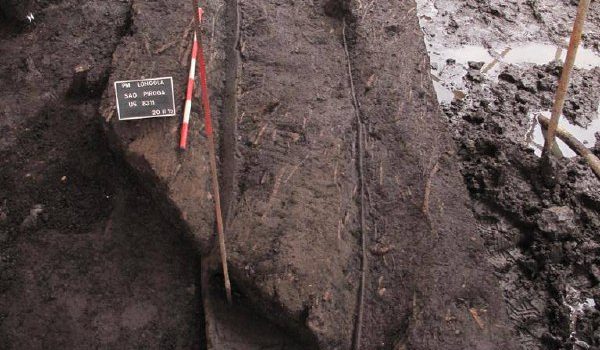RESTORATION BEGINS ON THE LONGOLA PIROGUE WHICH WILL BE DISPLAYED AT THE MUSA CENTRE (MUSEUMS OF AGRICULTURAL SCIENCES) IN THE ROYAL PALACE OF PORTICI
The agreement also provides for the museum display of the site's finds in the Stuccoed Halls of the Piano Nobile of the Royal Palace of Portici, which are currently undergoing architectural restoration and are being prepared to eventually become the definitive exhibition areas of the MUSA.
The Longola pirogue constitutes a unique find, as do many of the other wooden finds recovered from the site, since the water which has always characterised the life of the village has also permitted the extraordinary preservation of the perishable materials of the dwellings and infrastructure, which thereby constitute an exceptional dossier for dendrochronological, archaeobotanical and archaeozoological studies.
The complex restoration of the pirogue, which will be conducted by restorers specialised in the restoration of wood, will last approximately a year.
This extraordinary find will form the fulcrum of a scientific and didactic exhibition, aimed at ensuring the broadest possible understanding and appreciation of these finds by the community. As part of the multidisciplinary museum route, which is currently being assembled, there will be a room specifically dedicated to archaeobotany, a science whose various topics will be exemplified, including archaeological and restoration techniques, methods for determining the anatomy of wood, the history of agriculture and landscape archaeology.


